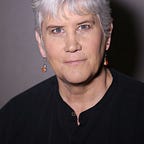Health, Healing and Peace through Narrative Poetry
A How To Write Poetry for Health, Healing and Peace.
“Healing is a matter of time, but it is also a matter of opportunity.” — Hippocrates, 460 BC-370 BC.
Poetry can be used to increase brain function, helping people with Alzheimer’s disease and dementia; decrease or eliminate pain, supporting people with chronic pain issues; and elevate mood, engaging and lifting people with mood disorders.
Noting the impact of poetry, both reading and writing poetry, on pain and suffering, a recent article in The Permanente Journal lays out poems which are the author’s expression of the meaning of living with chronic pain for over 20 years, a kind of philosophical hermeneutic conversation about pain and poetry. The article’s authors explore “the efficacy of writing and reading poetry as a means to help people living with chronic pain to explore and express their narratives in their own unique way.”
Eugene Feig, one of the authors of this article sends out poetry almost weekly to the members of a pain support group as a means of sharing his own experiences of living with pain, as well as to support and to inspire hope in others. “The style of poetry we are presenting is that of a person who is not knowledgeable about poetry in a formal sense but who has an understanding of how it has helped him learn to live.”
Self Healing and Self Empathy
The article goes on to say, “the cathartic poem is an attempt at self-healing through self-empathy. The poem and the person endeavor to make sense of chaotic thinking, restoring a feeling of balance and of wholeness in oneself through words. By better understanding their own experience of their pain, and of the internal chaos that inhabits them, people may begin to open up to learning to accept their lives with pain.”
Writing about the meaning of wholeness, reflecting on one’s own sense of what wholeness is, and trying to understand how different people have different perspectives on health, healing and wholeness can shift us towards balanced and pain-free lives.
Here are three dictionary poems that can be used in meditation, as poetry prompts, or a focusing tool.
Utzil Chomal
“Utzil chomal” is translated peace in Achi spoken in Guatemala. The language is very closely related to K’iche’ or Quiche and is part of one of the indigenous language families of Guatemala.
Peaceful U
Words of peace
starts with you
“utzil” in Achi
a Mayan language
closely related to K’iche’ or Quiche
“utzil” peace
living with goodness
“Ya’ol utzil” means
this is what is going to bring us peace
in Guatemala.
it describes
peace with the world
peace with each other
peace with our body, our health and healing
Consider what is going to bring you peace and comfort.
Shalama
The word “Shalama” comes from Classical Aramaic, spoken in the Middle East by First Century Jews and currently spoken in Syria, Iraq, Iran, Israel, the United States and in liturgical services. It is related to the Hebrew word, “Shalom” and the Arabic word, “Salaam.” The word comes from the S-L-M Semitic root and is translated: peace, completeness, to be whole, to follow, to agree, to obey, perfection, wholeness, health, welfare, and safety.
Peace and Wholeness in Aramaic
In Aramaic “Shalama” means peace
with a sense of wholeness
the completeness of a hard but good day’s work
hitting a milestone
a graduation
a level completed
moving on from one step to the next
There is also the sense of following
someone who has more experience
to agree or come to understand another’s position
perhaps to obey but willingly with understanding
of good and the greater good
“Shalama” holds health, welfare and safety
but also peace so it cannot be just for one
it must be for all
this health and wholeness
together finding a way
to thrive in comfort
Údo
“Údo” is translated peace, quietness, and calmness in Ònì chà Igbo spoken in Nigeria.
Perfect For Me Peace
“Údo” means peace as well as quietness and calmness
like a cool moonlit fall night
and the kids have settled to sleep
“anya ūdo” teachs us in Ònì chà Igbo spoken in Nigeria
that self-control and temperance can bring us peace
as we say in Nigeria “bi n’ùdo” the self in peace or harmony
when found after searching, working playing with words and friends
always searching for the positive
saying to all we meet
“Ànyî chò ̣ lụ̀ ùdo” we want peace
“chọ ùdo” we look for peace
“ezi ūdo” a perfect peace
or perfect for us
giving us the ability to live
“bi n’ùdo” in peace and harmony
Play with these nuances, peace poems, and health poetry. Play with the idea of the connection or correlation between words and physical and mental health? Do we feel better when we integrate our experience through the lens of poetry? Do you believe poetry helps in managing mind over matter?
Originally published at https://trishhopkinson.com on February 15, 2019.
